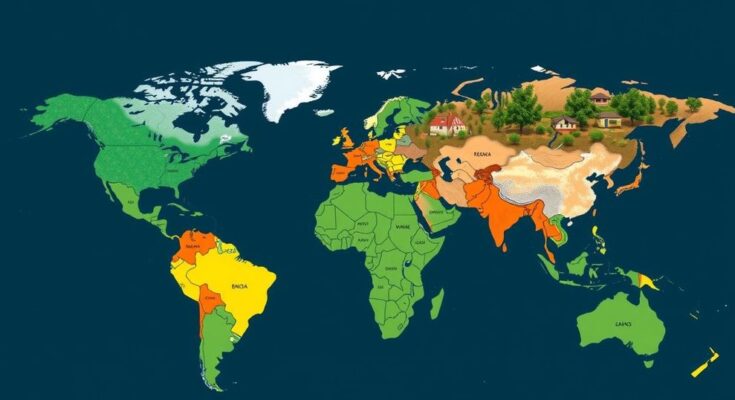Wealthier nations are beginning to compensate poorer countries for climate-related damages, with recent funding initiatives illustrated by Cyclone Freddy’s impact in Malawi. Displaced individuals like Christopher Bingala received critical support, enabling recovery. At the COP29 summit, discussions are advancing on the fund’s distribution, emphasizing the urgent need for richer nations to responsibly contribute to climate action.
The devastating impacts of Cyclone Freddy in 2023 exemplify the urgent need for climate change compensations. Amidst the chaos, many like Christopher Bingala, who lost his home and livestock, received vital support through a new funding mechanism aimed at addressing climate-related damages. Specifically, Bingala received approximately $750, which enabled him to rebuild his life and support his family after the disaster. This support is part of a larger initiative where wealthier nations have pledged nearly $720 million to assist poorer countries disproportionately affected by climate disturbances, despite contributing minimally to global emissions.
At the COP29 climate summit in Baku, negotiations are underway regarding the allocation of funds for developing nations, with stakeholders advocating for broader support beyond immediate disaster relief. The Prime Minister of the Bahamas, Philip Davis, articulates the pressing need for accountability among industrialized nations, urging them to recognize their ecological responsibilities.
The pilot program in Malawi, funded by Scotland, demonstrates a pivotal step towards sustaining communities crippled by climate effects. Many displaced families received payments from the organization GiveDirectly, fostering both recovery and resilience. This funding mechanism, however, faces scrutiny as developing countries stress the necessity for extensive resources to enhance their disaster readiness amidst escalating climate emergencies. Forecasts indicate that the demand for such funding could escalate to $250 billion annually by 2030, compelling wealthier nations to act decisively to mitigate humanitarian crises linked to climate change.
The burgeoning dialogue around ‘loss and damage’ compensation for climate-induced disasters highlights the disparity between developed and developing nations. Low-income countries are experiencing the brunt of climate change, facing extreme weather events while contributing minimally to global carbon emissions. The establishment of a dedicated fund by wealthier nations marks a significant effort to address these inequalities, following the adoption of the Paris Agreement. Most recently, Cyclone Freddy’s severe repercussions in Malawi illustrate the dire need for actionable support in regions afflicted by such climatic upheavals, necessitating international cooperation and funding.
The establishment of climate change funding mechanisms represents an important step towards equity in addressing environmental disasters. The onus is now on wealthier countries to fulfill their commitments and ensure that the funds pledged reach the most vulnerable populations effectively. As the consequences of climate change become increasingly dire, sustained action will be critical in preventing deeper humanitarian crises across affected regions.
Original Source: www.wmuk.org




